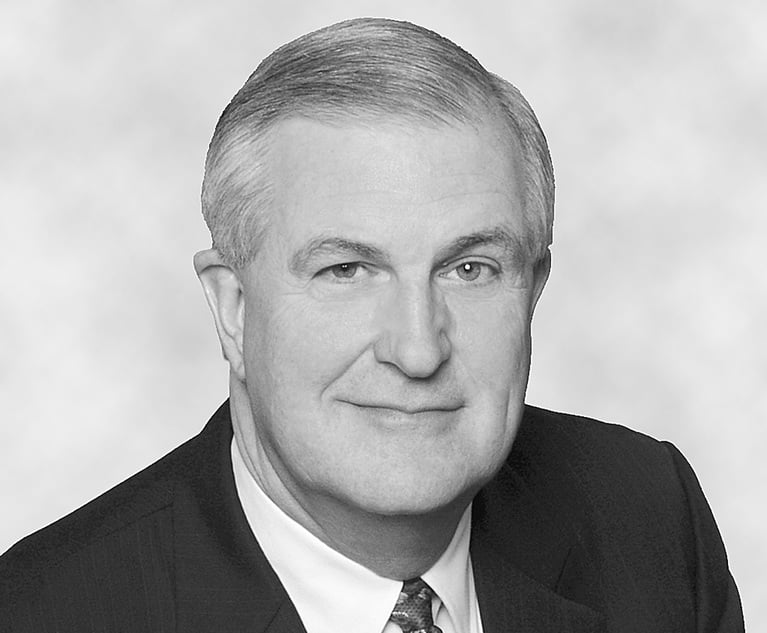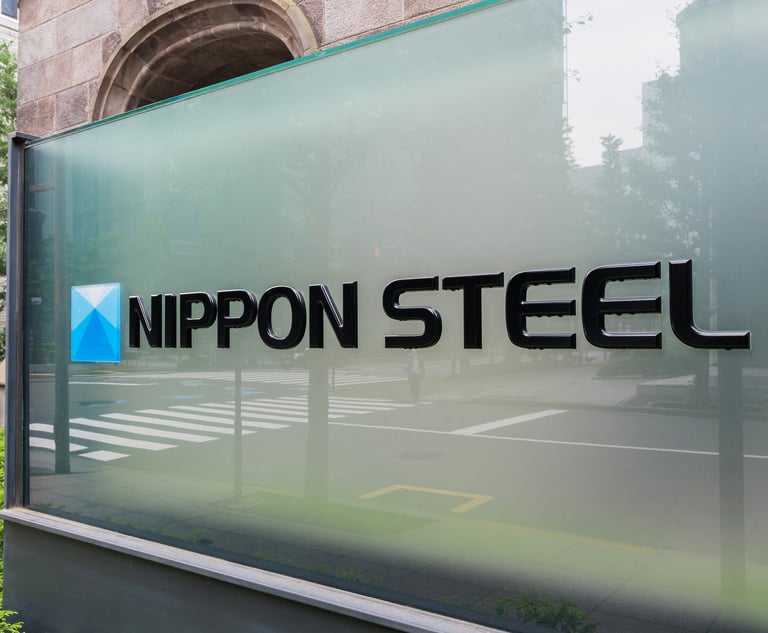 John Drdek, associate at Sheppard Mullin.
John Drdek, associate at Sheppard Mullin.From Hollywood to Bagram, Big Law to Fighting COVID-19: A Sheppard Mullin Associate's Unusual Path
John Drdek says writing for the "Teenage Mutant Ninja Turtles," being a corporate litigator and handling public affairs for the Navy are more similar than one might expect.
May 12, 2020 at 06:40 PM
5 minute read
John Drdek, an associate in Sheppard Mullin's business trial practice group practicing out of the firm's Del Mar, California, office, was packing May 8 for a flight to Hawaii—a strange trip to be taking during the middle of a pandemic.
It wasn't a vacation, though. The fourth-year associate was preparing for a two-month stay at COMPACFLT, also known as the headquarters of the United States' Navy Pacific Fleet.
Drdek, who has been a public affairs officer in the Navy reserve for more than a decade, was deployed May 9 to help the Navy with its communications efforts related to COVID-19.
While far from unheard of, Big Law attorneys in the armed forces are somewhat of a rarity. Drdek's story is even more unusual in that practicing law wasn't his first career, nor was being in the Navy Reserve. That distinction belongs to Drdek's former role as a producer and screenwriter in Hollywood.
The American Lawyer caught up with Drdek prior to his deployment last weekend to learn how a former writer for Nickelodeon and producer for Starz ended up at an Am Law 100 firm.
Drdek's answers have been lightly edited for length.
Can you explain how you managed to go from Hollywood to the Navy and finally to Big Law? It's a rather unique path.
It has been quite the circuitous journey. I went to the University of Southern California's film school and wanted to work as a writer and director in Hollywood. At the same time, I received an ROTC scholarship from the Navy. I'm from San Diego and wanted to serve. But my senior year of high school, I blew out my ACL pole vaulting. I couldn't meet the physical demands of the Navy and lost my scholarship. I was still able to go to USC, but the Navy didn't appear to be part of my future.
I got a manager shortly after I graduated and worked at a number of studios as a writer. I had some success writing children's stories and animation. I worked on the "Teenage Mutant Ninja Turtles" cartoon, for one.
Then I found out about the Navy's direct officer training program. The Navy was looking for accomplished professionals in various fields like medicine, oceanography and public affairs. Half of the work I did in Hollywood was PR, [so] I started taking more work on the PR side of things and got selected as a direct commission public affairs officer.
At the same time, I was growing a little tired of my career in Hollywood. I asked myself if this was the career I wanted for the rest of my life. It didn't have the security I wanted and I wasn't being intellectually stimulated. My manager and lawyer seemed to be doing all the fun stuff. I could only write glorified 22-minute commercials for plastic toys for so long.
I was deployed to Afghanistan in the early 2010s and while I was in Bagram, I started studying for the LSAT in my downtime. Taking the LSATs right after a Taliban rocket attack was interesting.
I got into Stanford Law and was later recruited by the managing partner of Sheppard Mullin's Del Mar office, who was very supportive of my reserve work.
Are there any similarities between the work you did in Hollywood and the legal work you do?
I've found it quite similar. In both screenwriting and corporate litigation, there is an emphasis on successfully crafting a narrative. In Hollywood, I was trying to get a segment of the population to buy toys. You need heroes, villains and an interesting narrative point. It's similar in litigation, where you are asking for something. Asking for relief or a bearable ruling on a motion, and you need to craft a successful, interesting and compelling narrative to do that. A lot of times you frame certain players as heroes or villains.
What sort of work will you be doing on your deployment?
I'll be in Makalapa, Hawaii, which is the headquarters for the Pacific Fleet. Yes, there are worse places to be stationed. Our job in public affairs is to inform the public of what the Navy is doing. In the time of COVID-19, we want to inform and ensure the public that the Navy is operational, tell them how we are dealing with treatment and responses in terms of preparations and ensure people know the Navy is willing and able to fight if needed.
Any thoughts about going back to Hollywood at some point?
That chapter of my life is over. I really enjoy being an attorney, and between doing that and my responsibilities to the Navy, there won't be a lot of free time. It does allow me to enjoy TV more, though.
|Read More
Pay Cuts, Layoffs, and More: How Law Firms Are Managing the Pandemic
As Bankruptcies Surge, Sheppard Mullin Adds Kirkland Partner
This content has been archived. It is available through our partners, LexisNexis® and Bloomberg Law.
To view this content, please continue to their sites.
Not a Lexis Subscriber?
Subscribe Now
Not a Bloomberg Law Subscriber?
Subscribe Now
NOT FOR REPRINT
© 2025 ALM Global, LLC, All Rights Reserved. Request academic re-use from www.copyright.com. All other uses, submit a request to [email protected]. For more information visit Asset & Logo Licensing.
You Might Like
View All


Milbank, Wachtell, Ropes and Pittsburgh Duo Aim to Save Nippon Steel-U.S. Steel Merger
Law Firms Mentioned
Trending Stories
Who Got The Work
Michael G. Bongiorno, Andrew Scott Dulberg and Elizabeth E. Driscoll from Wilmer Cutler Pickering Hale and Dorr have stepped in to represent Symbotic Inc., an A.I.-enabled technology platform that focuses on increasing supply chain efficiency, and other defendants in a pending shareholder derivative lawsuit. The case, filed Oct. 2 in Massachusetts District Court by the Brown Law Firm on behalf of Stephen Austen, accuses certain officers and directors of misleading investors in regard to Symbotic's potential for margin growth by failing to disclose that the company was not equipped to timely deploy its systems or manage expenses through project delays. The case, assigned to U.S. District Judge Nathaniel M. Gorton, is 1:24-cv-12522, Austen v. Cohen et al.
Who Got The Work
Edmund Polubinski and Marie Killmond of Davis Polk & Wardwell have entered appearances for data platform software development company MongoDB and other defendants in a pending shareholder derivative lawsuit. The action, filed Oct. 7 in New York Southern District Court by the Brown Law Firm, accuses the company's directors and/or officers of falsely expressing confidence in the company’s restructuring of its sales incentive plan and downplaying the severity of decreases in its upfront commitments. The case is 1:24-cv-07594, Roy v. Ittycheria et al.
Who Got The Work
Amy O. Bruchs and Kurt F. Ellison of Michael Best & Friedrich have entered appearances for Epic Systems Corp. in a pending employment discrimination lawsuit. The suit was filed Sept. 7 in Wisconsin Western District Court by Levine Eisberner LLC and Siri & Glimstad on behalf of a project manager who claims that he was wrongfully terminated after applying for a religious exemption to the defendant's COVID-19 vaccine mandate. The case, assigned to U.S. Magistrate Judge Anita Marie Boor, is 3:24-cv-00630, Secker, Nathan v. Epic Systems Corporation.
Who Got The Work
David X. Sullivan, Thomas J. Finn and Gregory A. Hall from McCarter & English have entered appearances for Sunrun Installation Services in a pending civil rights lawsuit. The complaint was filed Sept. 4 in Connecticut District Court by attorney Robert M. Berke on behalf of former employee George Edward Steins, who was arrested and charged with employing an unregistered home improvement salesperson. The complaint alleges that had Sunrun informed the Connecticut Department of Consumer Protection that the plaintiff's employment had ended in 2017 and that he no longer held Sunrun's home improvement contractor license, he would not have been hit with charges, which were dismissed in May 2024. The case, assigned to U.S. District Judge Jeffrey A. Meyer, is 3:24-cv-01423, Steins v. Sunrun, Inc. et al.
Who Got The Work
Greenberg Traurig shareholder Joshua L. Raskin has entered an appearance for boohoo.com UK Ltd. in a pending patent infringement lawsuit. The suit, filed Sept. 3 in Texas Eastern District Court by Rozier Hardt McDonough on behalf of Alto Dynamics, asserts five patents related to an online shopping platform. The case, assigned to U.S. District Judge Rodney Gilstrap, is 2:24-cv-00719, Alto Dynamics, LLC v. boohoo.com UK Limited.
Featured Firms
Law Offices of Gary Martin Hays & Associates, P.C.
(470) 294-1674
Law Offices of Mark E. Salomone
(857) 444-6468
Smith & Hassler
(713) 739-1250









